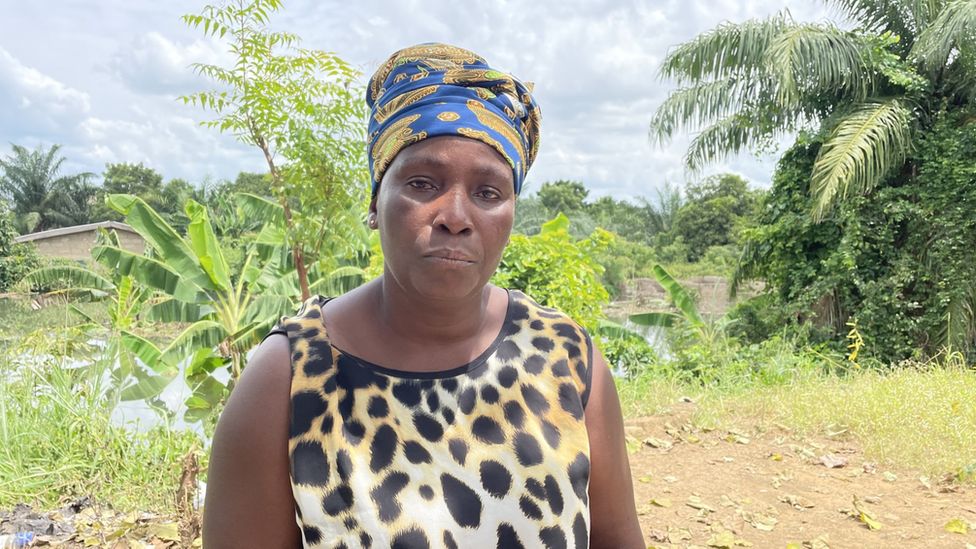-

-
-
Loading

Loading

Awusife Kagbitor is standing on a patch of dry land, looking down at her destroyed and submerged home in Mepe, Ghana. She recounts how the water rushed into her house from a nearby stream, rising to her neck within 10 minutes. Her son, Kenneth, swam through the rising waters to save her and his younger siblings. Awusife is one of thousands affected by the floods in the country's Volta Region. She tearfully explains that they were taken by surprise and lost everything. Her farm and house are completely underwater, leaving her with no place to go or rebuild. Around 26,000 people share Awusife's fate, displaced by floods caused by controlled spillage from the Akosombo and Kpong hydro-electric dams near Lake Volta. Ghana has been experiencing unpredictable rainfall due to climate change. Heavy rains have increased the water levels in the dams, prompting officials to release excess water to prevent a catastrophe. The Akosombo and Kpong Dams account for one-third of Ghana's energy mix. The authorities plan to reduce the rate of spillage while monitoring the water volume upstream. The Akosombo dam, built in the 1960s, aimed to provide energy for industrialization. However, it led to the relocation of around 80,000 people and the creation of the largest man-made lake in the world, the Volta Lake. Although the dam has been spilled in the past, this year's flooding is one of the worst experienced by downstream communities. The National Disaster Management Organization estimates that eight districts have been affected by the flooding, with many homes being completely submerged. Essential services like water and electricity are no longer reaching the affected areas, and there are concerns about the outbreak of diseases due to flooded toilet facilities, cemeteries, and refuse dumps. Local officials had warned residents to take precautionary measures, but many did not heed the warnings. The impact of the floods has devastated communities and caused economic hardship for residents. The Ghanaian navy has been assisting in rescue efforts and has already rescued over 8,000 people. The Deputy Director General of the National Disaster Management Organization attributes the floods to heavy rains caused by climate change. Holding areas have been set up for displaced individuals, and some relief aid is being provided. However, with more rain predicted, the water levels will continue to rise, leading to more displacement and loss for people like Awusife Kagbitor.